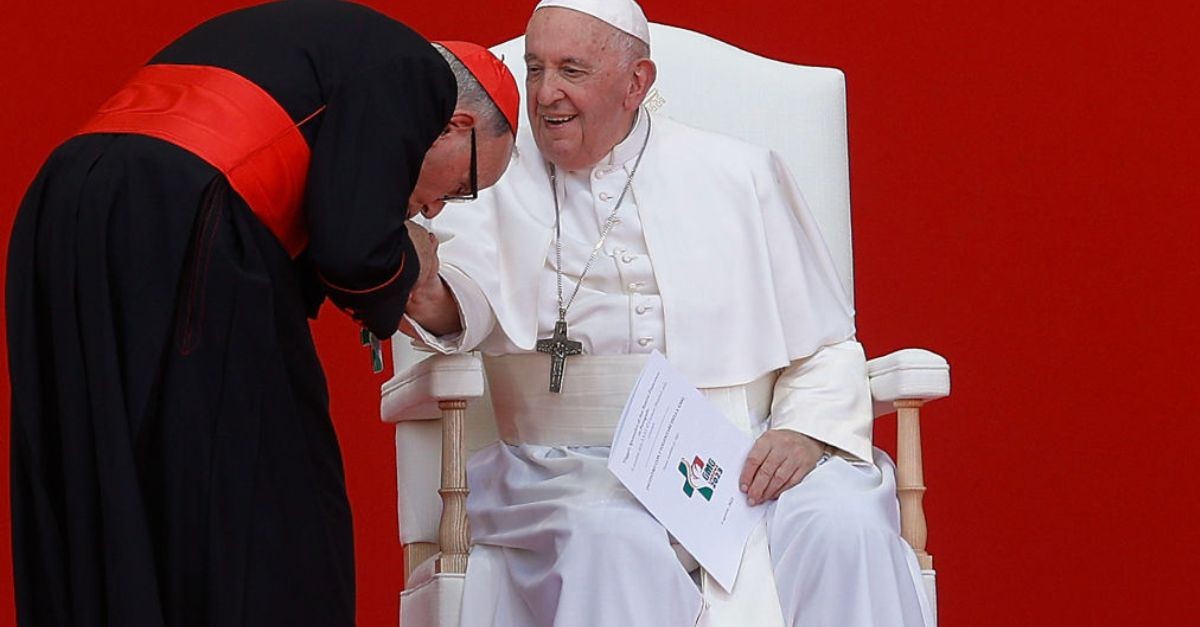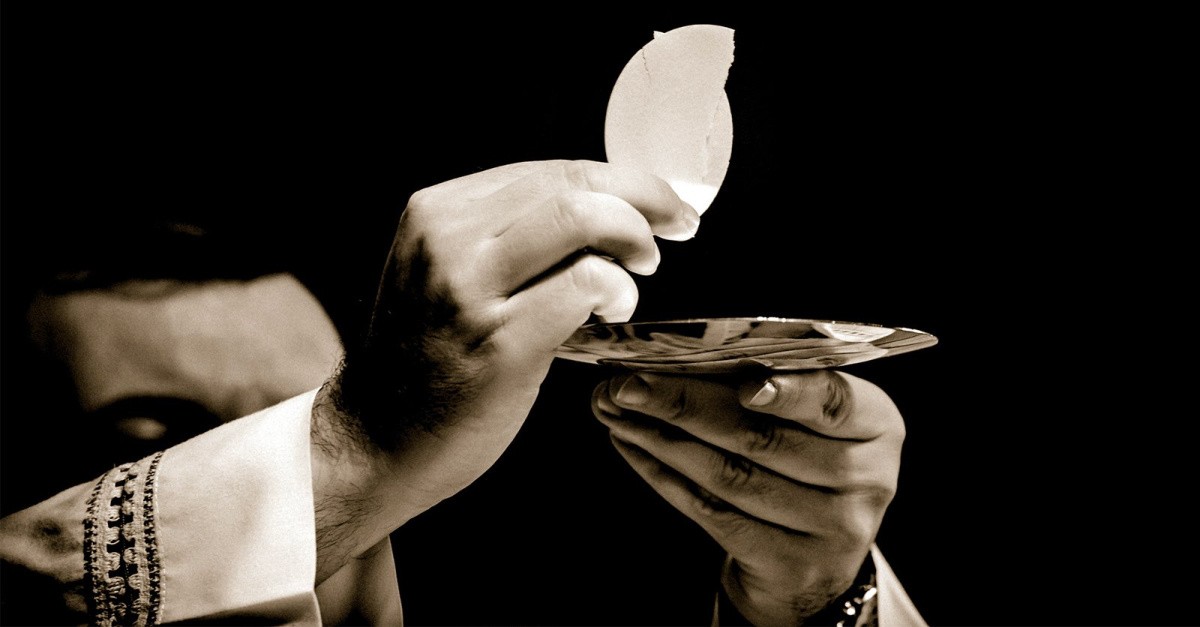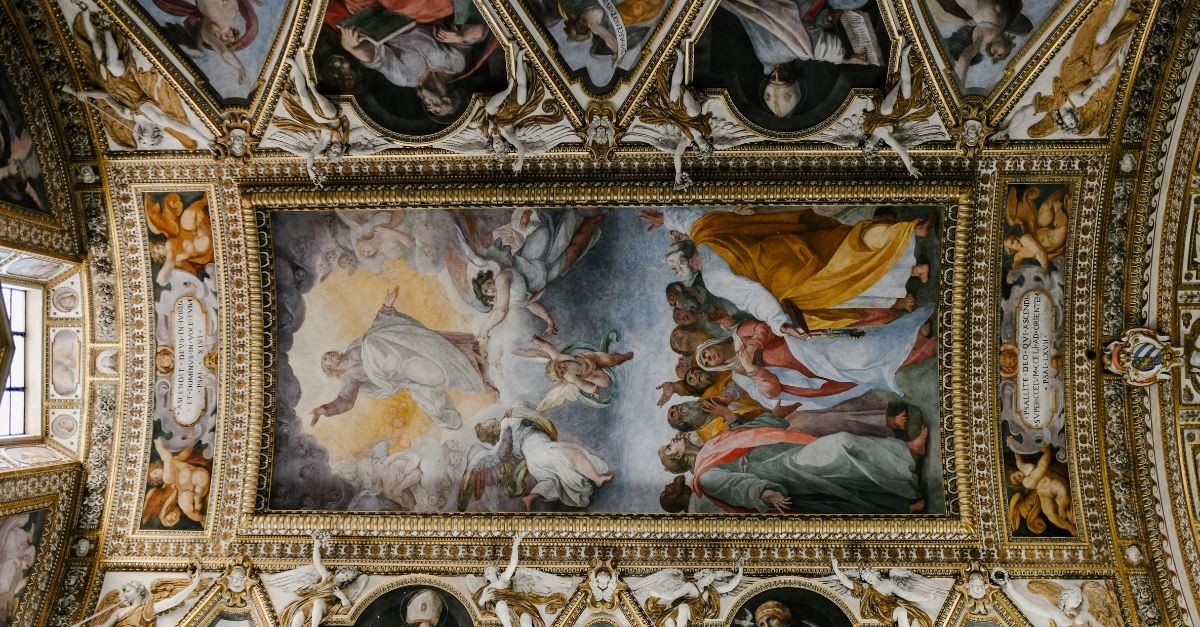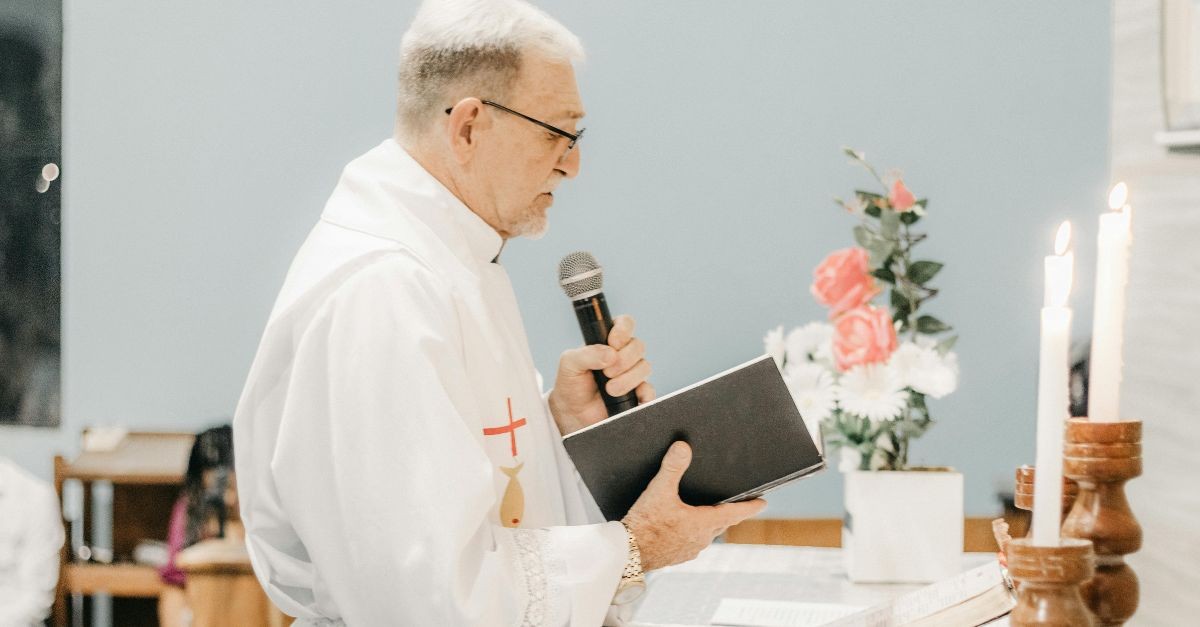
Beginning with Martin Luther’s 95 Theses, the Protestant Reformation began. Protestants like Luther, John Calvin, and Ulrich Zwingli critiqued the Catholic Church practices like indulgences. These reformers sparked religious wars and divisions across Europe, challenging the Catholic Church’s authority and leading to the establishment of various Protestant denominations.
Many of those Protestant denominations developed into modern Evangelicalism, which has swept much of America. Through extensive mission work, Evangelicalism has become one of the major Christian representations, perhaps the most vocal and extensive.
These two branches of Christianity (Catholic and Protestant) became separate and sometimes hostile towards each other over the centuries, to the point where many Protestants and Evangelicals may not fully understand the differences between what they believe and how Catholicism is different. In many ways, these two groups have similarities, but there are significant differences.
Here are 7 ways Catholicism is different from Christianity.
Photo Credit: @Getty Images/Liudmila Chernetska

1. Papal Authority
In Catholicism, Papal authority stands as a cornerstone, representing a centralized power structure within the Church. The Pope, regarded as the successor of Saint Peter, holds supreme authority over matters of doctrine, discipline, and governance. Through apostolic succession, Catholics believe that the Pope inherits spiritual authority directly from Jesus Christ, granting him the ability to interpret scripture and guide the faithful.
Protestant and Evangelical traditions typically don’t recognize one leader with universal authority. Instead, authority is often dispersed among various denominational leaders, local pastors, or even individual believers themselves through the leadership of the Holy Spirit/ Protestants and Evangelicals who believe Jesus now serves as the High Priest in heaven. Therefore, no earthly mediator is necessary (1 Timothy 2:5).
While Catholics view the Pope as infallible in matters of faith and morals when speaking ex cathedra (from the chair of Peter), Protestants and Evangelicals reject this notion, placing greater emphasis on the priesthood of all believers (1 Peter 2:9) and the autonomy of local churches. Doctrinal differences regarding the role of the Pope often lead to distinct practices and beliefs between Catholicism and Protestantism. In general, Protestant and Evangelical churches believe in biblical leadership like pastors and elders. However, they understand these biblical roles as leaders among fellows.
Photo Credit: ©Getty Images/Pool / Pool
2. Church Authority
The Catholic Church, led by the Pope in Rome, holds authority over doctrine, sacraments, and governance matters for Roman Catholics. They interpret this authority as divinely ordained, tracing back to Jesus’ commission to Peter as the rock upon which the Church would be built. This authority even allows priests to forgive sins when hearing confession. Through apostolic succession, bishops drive authority from the Pope and traditions, ensuring a unified teaching and governance across the Catholic world.
Due to the indwelling Holy Spirit within each Jesus follower, Protestants and Evangelicals often emphasize the priesthood of all believers and local autonomy within individual congregations. Authority exists, yet it is shared and distributed among pastors, elders, and congregational leaders, with each community having the freedom to establish its own practices. While certain denominations have governing bodies or councils, these structures tend to be more decentralized than the Catholic system's strict authority.
The differences in church authority between Catholicism and Protestantism lead to distinct approaches to theology, worship, and ecclesiastical organization. Catholic teachings and practices are more uniform and regulated across dioceses and parishes. On the other hand, Protestant and Evangelical communities exhibit a wide diversity in beliefs and worship styles, as local congregations have more autonomy to adapt to their specific contexts and theological convictions. This variety and freedom in Protestantism also leads to divisions and numerous denominations.

3. The Eucharist
In Catholicism, the Eucharist holds a central and sacramental significance, believed to involve the transformation of bread and wine into the body and blood of Christ during the Mass. This doctrine, known as transubstantiation, asserts that the elements retain their outward appearance but undergo a profound change in substance, becoming the actual body and blood of Christ. Catholics view the Eucharist not only as a symbol but as a literal participation in the sacrifice of Christ, emphasizing its role in nourishing the soul and fostering communion with God and fellow believers.
Conversely, Protestant and Evangelical Christianity often interpret the Eucharist symbolically, viewing it as a memorial of Christ’s sacrifice rather than a sacramental reenactment. While these traditions may vary in their specific beliefs about the Eucharist, many reject the notion of transubstantiation, instead emphasizing the spiritual significance of the ritual as a symbolic act of remembrance and thanksgiving.
Reflecting the broader differences between Catholicism and Protestantism, Catholic belief in the authority of the Church underscores the idea the priest can perform this transformation of the elements. Further, Catholicism’s emphasis on the real presence of Christ in the Eucharist underscores its sacramental theology and the importance of liturgical worship within the faith community. In contrast, Protestant and Evangelical traditions often prioritize preaching, personal faith, and the symbolic interpretation of rituals, reflecting a more diverse range of theological perspectives within these denominations.
Photo Credit: RNS/Robert Cheaib/Creative Commons
4. Mary, Mother of Jesus
In Catholicism, Mary, the mother of Jesus, holds a position of immense reverence and honor, often described as the “Mother of God” or “Theotokos,” emphasizing her role in giving birth to Jesus, who Catholics believe is both fully human and fully divine. Mary is venerated as the greatest of all saints, endowed with special graces and intercessory powers. Catholic devotion to Mary includes prayers such as the Hail Mary and devotional practices like the Rosary, which highlight her significance in the life of believers.
In contrast, Protestant and Evangelical Christianity generally hold a less exalted view of Mary, regarding her primarily as the mother of Jesus and a faithful servant of God rather than as a figure worthy of veneration or intercessory prayer. While Protestants acknowledge Mary’s role in the birth of Jesus and her exemplary faith, they typically reject doctrines such as her perpetual virginity or assumption into heaven, which are upheld by Catholicism.
Catholic devotion to Mary reflects a sacramental worldview that emphasizes the communion of saints and the interconnectedness of the Church across time and space. In contrast, Protestant and Evangelical traditions prioritize a direct relationship with God through Jesus Christ, often emphasizing individual faith and personal interpretation of scripture over veneration of saints or reliance on tradition.

5. Saints
For Catholics, the veneration of saints holds a prominent place in religious practice. The Catholic Church regards saints as holy individuals who have lived exemplary lives of faith, virtue, and devotion to God. They serve as role models and intercessors for believers, with prayers and petitions often directed to them for guidance, protection, and assistance. Catholics believe that saints, through their closeness to God, can intercede on behalf of the faithful, presenting their prayers and requests before God.
The Catholic Church has developed criteria for naming a person “saint,” again a part of their idea of church authority. Generally, if a person has been involved with proven miracles and done great deeds, they can become a saint. Also, Catholics often associate a saint with a specific group of people or problem, like a saint of animals or lost things.
Contrastingly, Protestant and Evangelical Christianity generally adopt a different perspective on saints. While they acknowledge the importance of historical figures who have made significant contributions to the faith, they typically do not venerate them like Catholics. Instead, Protestants emphasize direct access to God through Jesus Christ without the need for any intermediary figures. They view prayer as a direct communication with God, focusing on Christ as the sole mediator between humanity and the divine.
Protestant Christians read about great leaders, ministers, and thinkers throughout history, believing they can learn about God through their lives and insights. However, they believe these historical figures to be other men and women, not mediators.
Photo Credit: ©Pexels/Julia Volk
6. Purgatory
In Catholic doctrine, purgatory represents a transitional state after death where souls undergo purification before entering heaven. They believe that while individuals may have died in a state of grace, they still carry sin and imperfection that need to be cleansed before being fully united with God, a type of salvation through works. Purgatory is viewed as a place of temporary suffering and purification, a place between heaven and hell, where prayers and the offering of Masses by the living aid in the release of souls from their temporal punishment.
Protestant and Evangelical Christianity generally reject the doctrine of purgatory, essentially since the Bible doesn’t mention a place. They argue salvation by faith alone, through grace, and that Jesus’ sacrifice on the cross is sufficient for the forgiveness of sins. According to this perspective, no intermediary state between death and eternity exists, as believers are immediately ushered into the presence of God upon death.
The Catholic doctrine of purgatory developed over time. Even though not in the Bible, Papal and Church authority gives credence to the idea. Indulgences became one of the major Reformation critiques, in which a person could pay the Church to release a person from purgatory into heaven. While paid indulgences have diminished by the Catholic Church, prayers for the deceased are still performed.
Protestant and Evangelical traditions emphasize the sufficiency of Christ’s atonement and the assurance of salvation for those who trust in him, rejecting the notion of purgatory as unnecessary or unsupported by scripture.

7. Biblical Canon
Catholics possess a different idea of biblical canon. First, their Bible includes books known as the deuterocanonical or apocryphal books, not found in Evangelical Bibles. These books, such as Tobit, Judith, and Wisdom, were included in the Septuagint, the Greek translation of the Hebrew scriptures. The Catholic Church affirms the authority of these books for matters of faith and practice, considering them inspired by God and useful for teaching.
Conversely, Protestant and Evangelical Christianity typically adhere to a narrower biblical canon, excluding the deuterocanonical books and recognizing only the 39 books of the Hebrew Bible and the 27 books of the New Testament. This canon, known as the Protestant or Evangelical canon, is based on the Hebrew scriptures preserved by the Jewish community and the writings accepted by the early Christian Church.
Further, Catholics don’t believe the Bible alone is the final standard on doctrine. Since the Pope represents Jesus on earth, his decrees and doctrine also become authoritative for the Church. Therefore, Catholics base doctrine on the Bible and what the Pope and the Church decide is correct doctrine. And when the two (the Bible and the Pope) disagree, the Church sides with the Papacy.
Protestant and Evangelical Christians believe that the Bible has ultimate authority over anyone on earth. It represents apostolic doctrine, teaching passed down from Jesus to the apostles. Protestantism's adherence to a narrower canon emphasizes sola scriptura, the principle that scripture alone is the ultimate authority for faith and practice.
Related Resource: Dr. Gavin Ortlund Unpacks Problematic Roman Catholic Dogmas
In today’s episode of The Becket Cook Show, Becket talks with historical theologian, Gavin Ortlund, about key questions regarding Roman Catholicism: the apocrypha, purgatory, the Pope, praying to saints and Mary, the assumption of Mary, the immaculate conception, transubstantiation, the Lord’s Supper, Sola Scripture, and what the Greek word, theotokos (God bearer), really means. Gavin’s examination of the history of these dogmas is extremely fascinating and edifying. If this episode helped you think through Catholicism, subscribe to The Becket Cook Show on Apple or Spotify so you never miss an episode!
Photo Credit: ©Pexels/Kawê Rodrigues

Originally published Wednesday, 05 June 2024.
